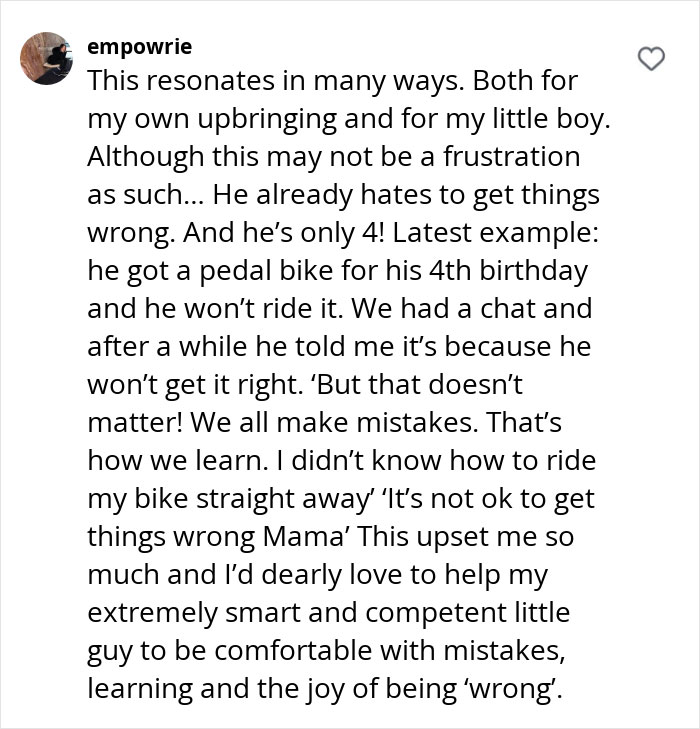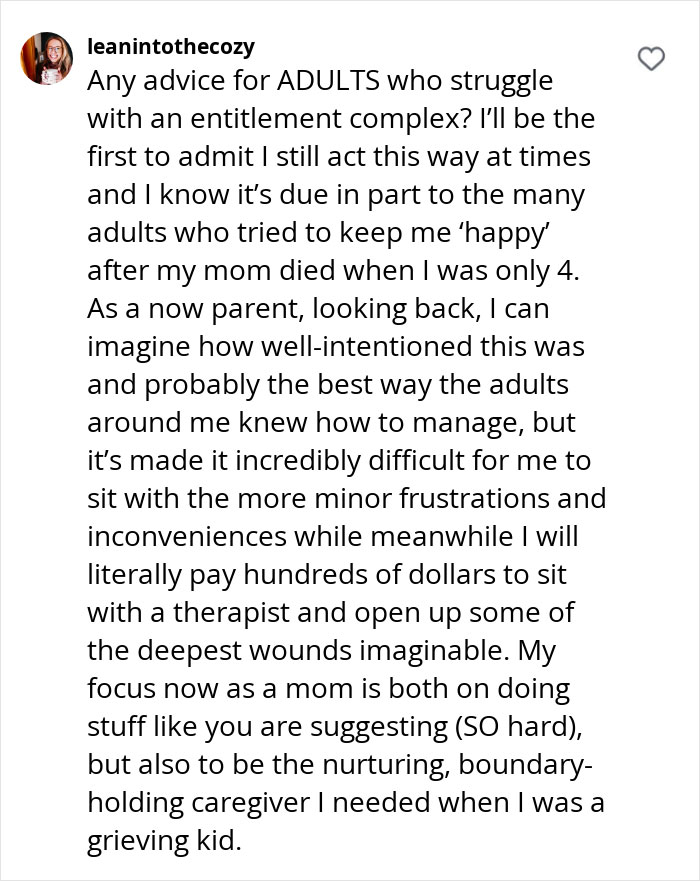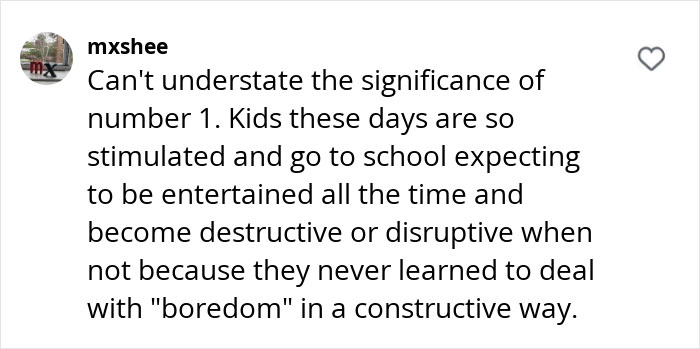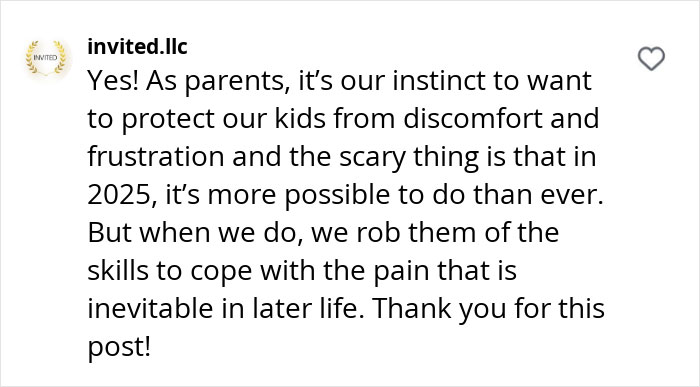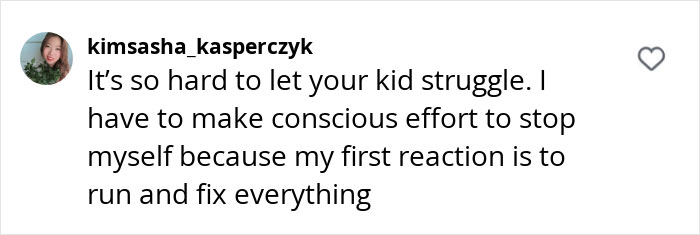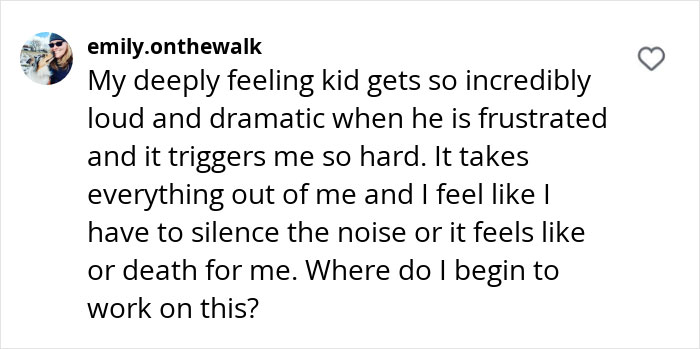There’s no doubt that parents want to prepare their children to succeed in life. But one thing that they might not think about while teaching kids important life skills is helping them to manage their big feelings, like frustration. According to parenting expert Dr. Becky Kennedy from Good Inside, parents have to infuse frustration into their children’s day so they learn to deal with hard things the right way, without developing entitlement.
In a short Instagram post, Dr. Becky listed 3 ways parents should ‘annoy’ their kids to teach them to tolerate the feeling, which allows them to become resilient, grow, and succeed in life. Scroll down to find them, and as always, don’t forget to leave your thoughts in the comments below.
There’s no doubt that parents want their kids to succeed

Image credits: drbeckyatgoodinside
According to this parenting coach, the best way to help them do that is to frustrate them
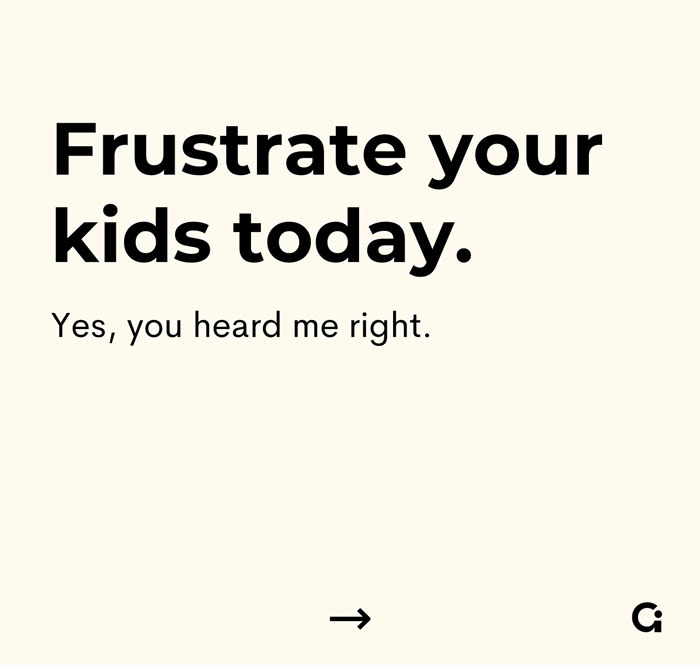
Image credits: drbeckyatgoodinside
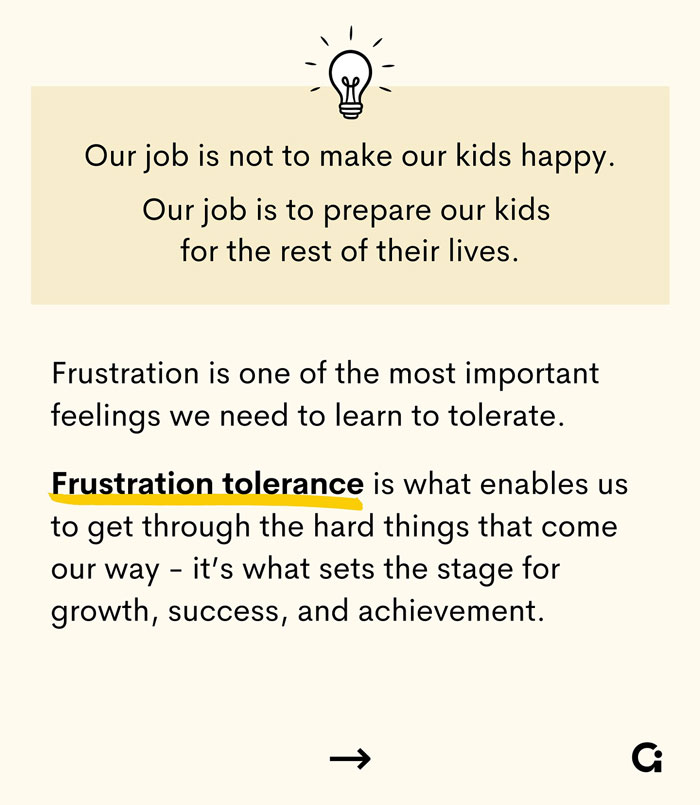
Image credits: drbeckyatgoodinside
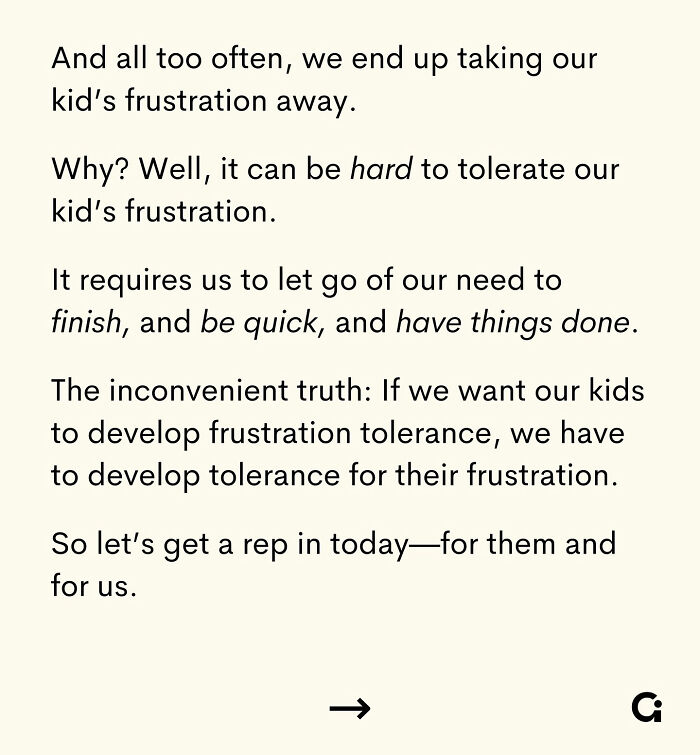
Image credits: drbeckyatgoodinside

Image credits: Kelly Sikkema / Unsplash (not the actual photo)
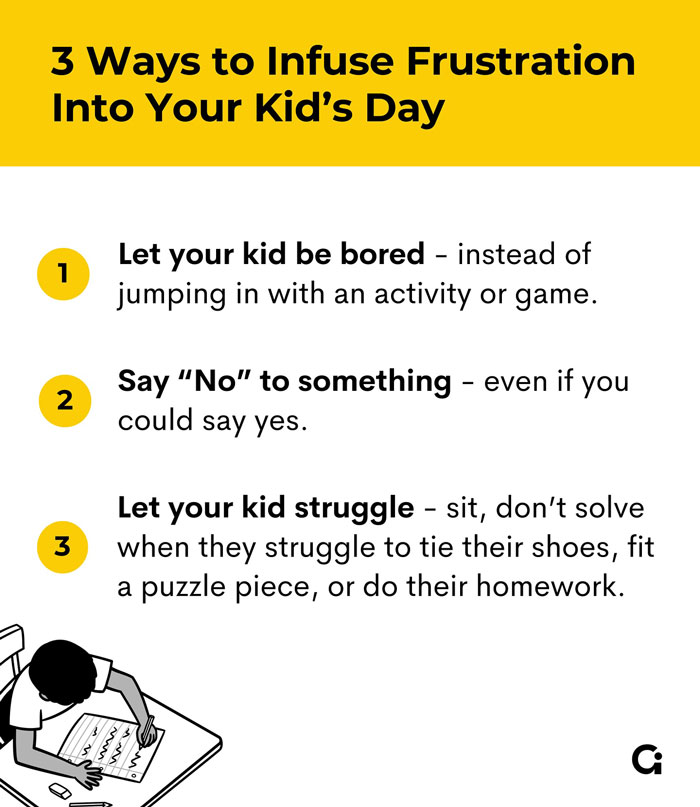
Image credits: drbeckyatgoodinside



Image credits: drbeckyatgoodinside
Kids with low frustration tolerance are more prone to experience meltdowns and tears
Just like any emotion, frustration is a normal part of life. When we’re unable to complete an important task, we feel annoyed, which can lead us to feel more extreme sensations, like unhappiness, anger, and helplessness.
However, when kids go through this, they aren’t yet capable of distinguishing the lesser emotions like frustration from bigger ones like anger. So when something inconvenient happens to them, they might go into fits of rage and tears. But the more they experience their emotions, the more likely they are to learn how to regulate them.
This is where parents come in, as they can help children understand their feelings and deal with them the right way. When they see their kids trying out a new task and see them getting a little frustrated, instead of running to them and trying to solve the problem, they should encourage them to take a step back and think of a better way to overcome it.
If parents jump in every time their baby is frustrated and crying, they’re essentially telling them that they’ll do everything for them. When that happens, kids become more likely to experience meltdowns, a lack of control, and tears while facing challenges, making them entitled or egocentric people who don’t like feeling uncomfortable, disappointed, or having boundaries placed on them related to their wants and needs. This can further develop into not wanting to take on new challenges, hindering their resilience and success.
Kids with strong frustration tolerance are better skilled in recovering from challenges
Therefore, it’s very important to help children build frustration tolerance. Kids with strong frustration tolerance are better skilled in recovering from challenges and setbacks by being able to think critically and find solutions to problems they face. This not only fosters independence and confidence but also prevents outbursts and meltdowns from occurring.
Overall, kids who are good at managing their frustrations are better at communicating and resolving conflicts, as well as building better relationships with children and adults.
Besides Dr. Becky’s suggested strategies of building frustration tolerance, like letting kids be bored, sometimes saying ‘no,’ and allowing children to struggle, parents can also help by labeling emotions so kids can learn to distinguish them.
If children don’t understand something, it’s hard for them to know what they’re feeling. So when kids express an emotion, parents should assign a name for it. For instance, if a kid is crying because their friend got sick on the day of their playdate, parents can explain that what they’re experiencing is sadness because they wish they could be with their friend and that it’s okay to feel that way.
Then, children should be encouraged to do the same. When they express emotion, parents should ask questions related to it. If they’re happy and giggly, parents can acknowledge it by saying, “You are smiling so much today! Is that because you are happy?” This gives them a chance to recognize their own feelings and label them.
Parents were loving the parent coach’s advice


